What medication can you take to Thailand?
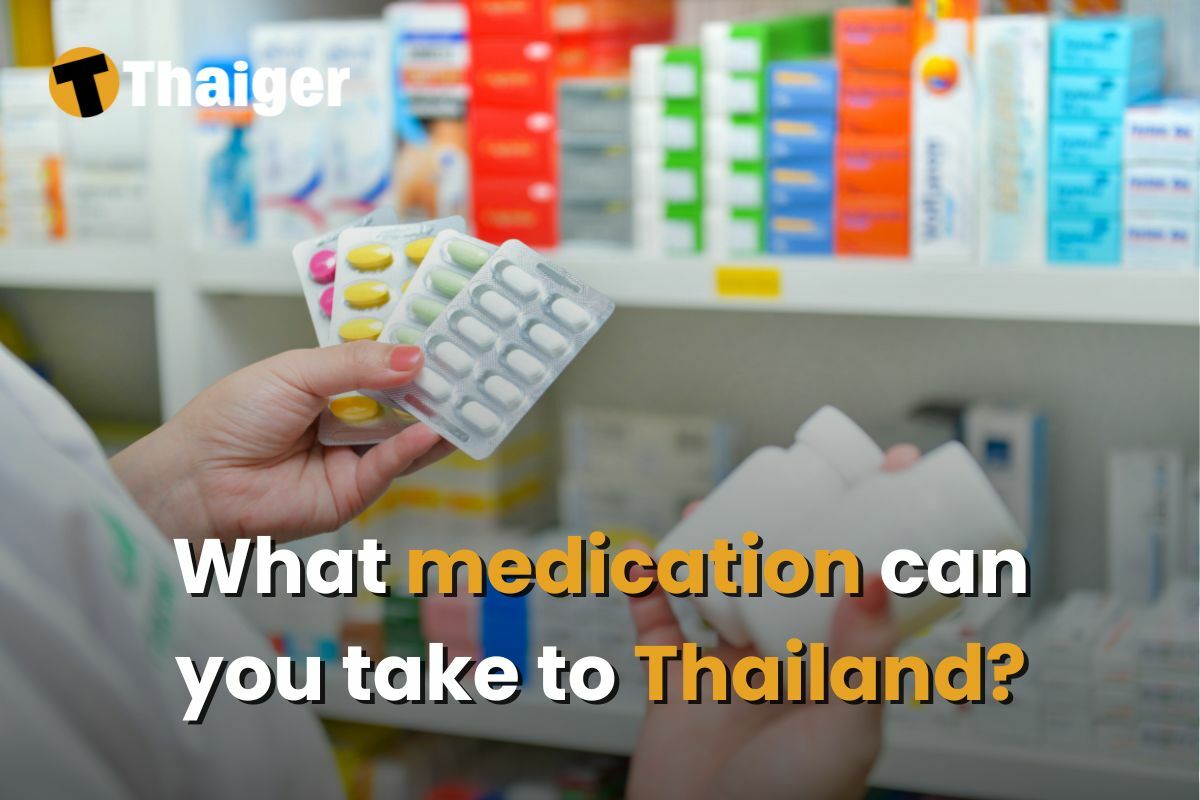
Planning a trip to Thailand with some medication on hand? Make sure you understand the medication rules to avoid any issues. Thailand has strict laws about importing prescription medicines, especially narcotics or psychotropics.
You can bring medications for personal use, but non-controlled drugs are limited to 90 days, while controlled substances must not exceed 30 days. Prepare the right medication, know what you can bring, and follow Thai regulations to stay healthy and avoid issues at customs.
What medicines can I take to Thailand when travelling?
Travellers to Thailand can bring personal medications, but regulations vary by drug category. Narcotics (Category 2) require a permit for up to 90 days of use, while psychotropic substances allow a maximum of 30 days with a prescription.
Pre-travel medication preparation for Thailand
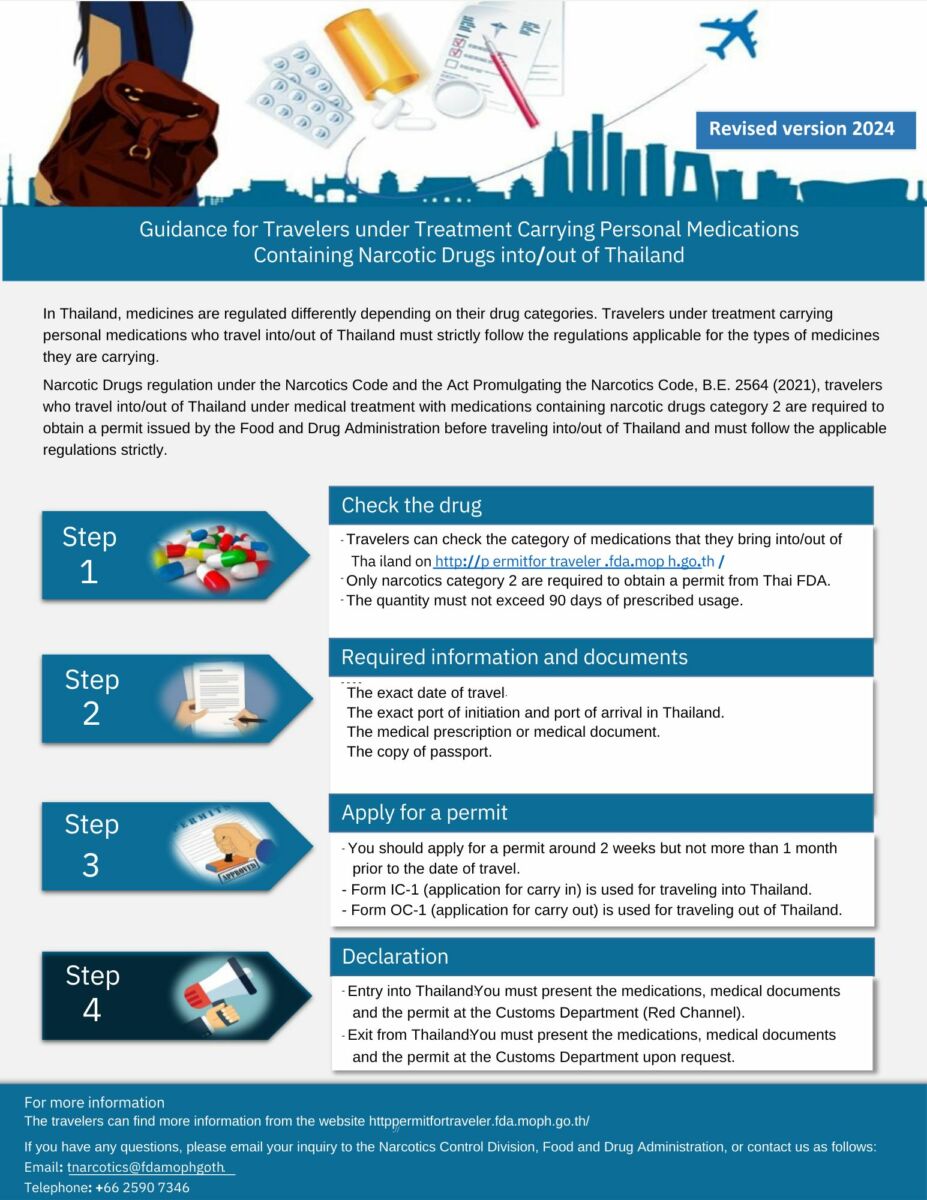
Containing Narcotic Drugs into/out of Thailand
Preparing the right medication ensures a safe and healthy trip to Thailand. Proper planning helps comply with local regulations and manage health needs effectively.
Basic medicine for travelling in Thailand
When packing for a trip to Thailand, it’s helpful to bring a few essential medications to handle common health issues. For pain relief or headaches, consider packing paracetamol or ibuprofen. If you have allergies, antihistamines like cetirizine can help with symptoms.
Anti-diarrheal medication, such as loperamide, is a good choice for any unexpected stomach issues. For those who experience motion sickness, bringing along dimenhydrinate tablets can make longer journeys more comfortable. Having these basics on hand will ensure you’re prepared for minor health concerns while travelling.
Malaria and vaccinations
Before travelling to Thailand, it’s important to check with your healthcare provider about necessary vaccinations. If you’re visiting areas with a risk of malaria, ask your doctor about anti-malaria tablets like doxycycline. Also, make sure your vaccinations are up-to-date for diseases such as Hepatitis A, Typhoid, and Japanese Encephalitis. The CDC website offers reliable information on recommended vaccinations, so reviewing their guidelines can help you stay well-protected for your trip. Taking these steps will help ensure a safe and healthy journey.
Vaccination prices can vary by hospital, but having international health insurance like Cigna can help reduce or even eliminate out-of-pocket expenses:
- Hepatitis A: Prices range from 1,500 to 1,700 baht (covered with no copay at pharmacies).
- Typhoid: Costs are typically 1,000 to 1,200 baht.
- Japanese Encephalitis: Expenses may be around 2,500 to 2,800 baht.
Special Black Friday offer extended!
Until the offer ends, get a FREE quote on international health insurance and lock in current rates before prices increase in 2025! Secure coverage now to enjoy peace of mind on your journey. Exclusive only for The Thaiger’s readers!
Last chance offer: 10% off for life!
Get 10% off your expat plan for the lifetime of your policy!
T&Cs apply*
Vitamins and emergency medications
To stay healthy during your trip, think about packing some vitamins, like a daily multivitamin, to help keep your energy up. If you have severe allergies, be sure to bring an epinephrine auto-injector (EpiPen) in case of emergencies.
It’s also a good idea to talk with your doctor about any specific health needs to make sure your medication kit is complete and suited to any personal conditions. Being prepared in this way will help you manage any health issues that come up, so you can fully enjoy your time in Thailand.
Understanding medication categories in Thailand
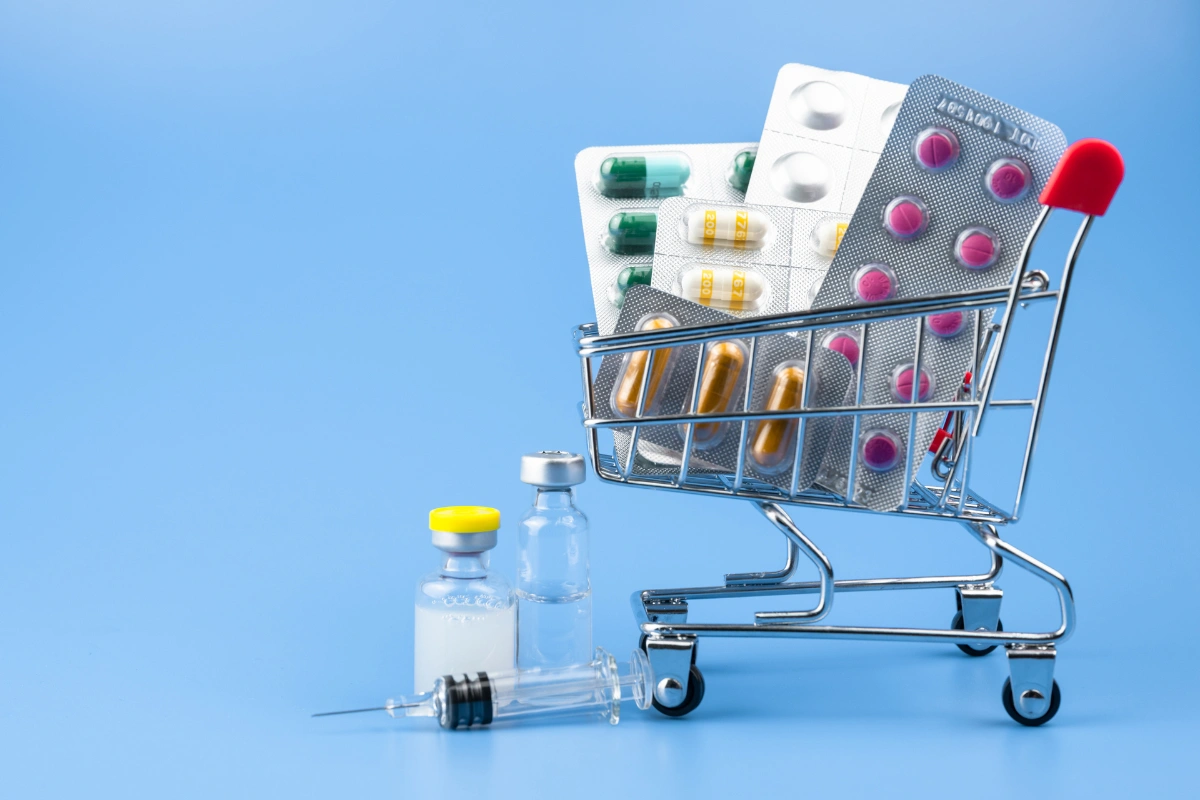
Understanding medication categories in Thailand ensures travellers comply with local laws. This section details which medications are permitted, the permit application process, required documents, and prohibited substances.
Travellers can bring medications to Thailand for personal use within regulated limits. These include narcotic drugs of category 2 and psychotropic substances of categories 2, 3, and 4, as defined by the Thai authorities.
Narcotic Drugs of Category 2
Travellers intending to bring narcotic drugs classified under Category 2 into Thailand must adhere to specific regulations. These medications can be carried for personal use, but the quantity must not exceed a 90-day supply as prescribed by a physician.
Before travelling, a permit (Form IC-2) from the Thai Food and Drug Administration (FDA) is required. This permit application should be submitted online at least two weeks prior to departure, allowing the FDA approximately 3-5 working days to process it. Examples of Category 2 narcotics include codeine, fentanyl, morphine, oxycodone, and methadone.
Narcotics list in Thailand
Download the table of controlled narcotic drugs in Thailand here.
Psychotropic Substances of Categories 2, 3, and 4
- Category 2 drugs such as alprazolam, methylphenidate, and zolpidem;
- Category 3 drugs like pentazocine and pentobarbital; and
- Category 4 drugs, including diazepam, lorazepam, and clonazepam.
Psychotropic substances list in Thailand
How to apply for a permit online to carry certain drugs to Thailand?

Required documents
Travellers must provide exact documents based on the medication category:
Prohibited medications in Thailand
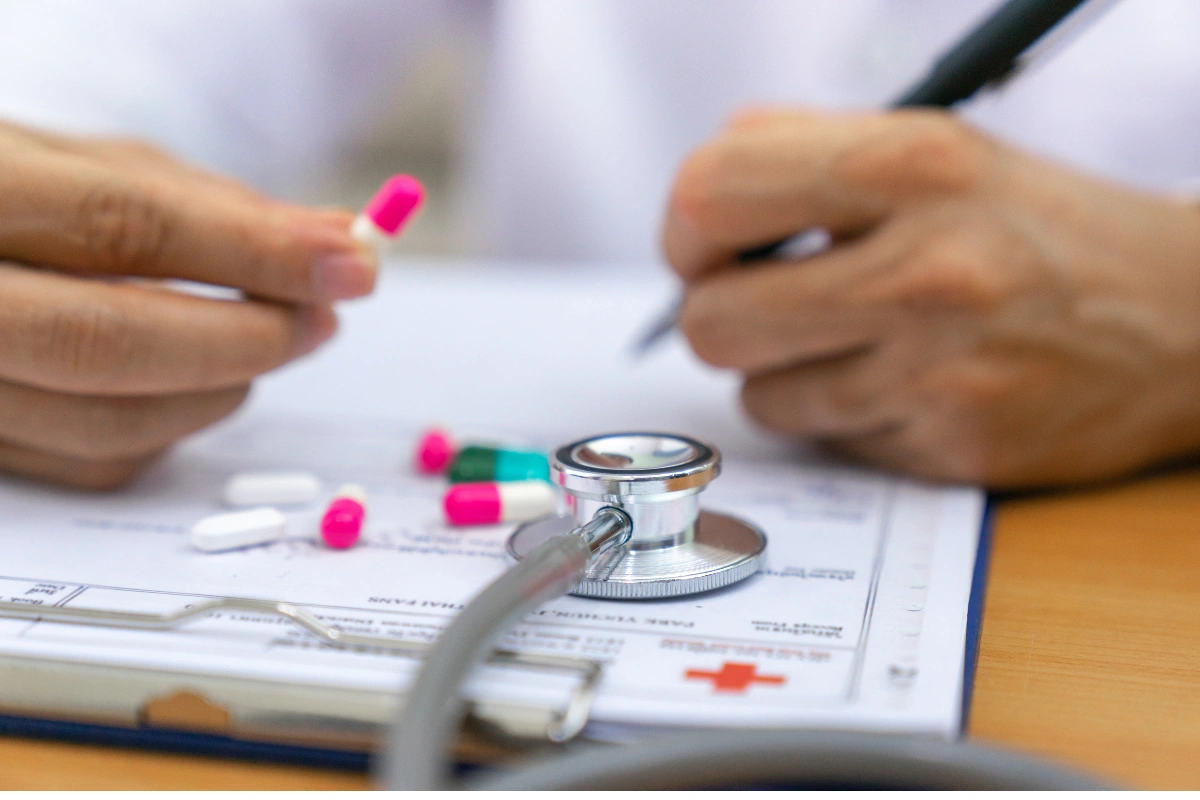
Certain medications are strictly prohibited in Thailand and cannot be brought into the country under any circumstances. These include narcotic drugs in Categories 1 and 5 and psychotropic substances in Category 1.
Narcotic Drugs Categories 1 and 5
Certain narcotic drugs are strictly prohibited from being brought into Thailand. This includes substances classified under Categories 1 and 5, which have no approved medical use in the country. Examples of these drugs include amphetamine and dexamphetamine.
Psychotropic Substances Category 1
Psychotropic substances classified as Category 1 are also prohibited in Thailand. This category includes drugs such as cathinone and GHB. Similar to narcotics in Categories 1 and 5, the importation or exportation of these substances is strictly forbidden, and they cannot be used for personal treatment under any circumstances.
Customs declaration
Travellers carrying narcotic drugs classified as Category 2 must declare these medications at customs using the Red Channel upon arrival in Thailand. For other medications that do not fall under the narcotic or psychotropic categories, the declaration is not required if they are for personal use and within the permitted quantity.
What are the prohibited diseases in Thailand?
In Thailand, certain diseases are prohibited for individuals seeking permanent residency or specific types of visas. The list of these diseases is outlined in various regulations and includes:
Prohibited Diseases
- Leprosy: This chronic infectious disease is caused by the bacterium Mycobacterium leprae and can cause severe disfigurement and disability if untreated.
- Tuberculosis (TB): Specifically, contagious forms of TB are considered a public health risk and are therefore prohibited.
- Elephantiasis: This condition, often caused by parasitic infections, leads to severe swelling, particularly in the limbs and genitals.
- Drug Addiction: Individuals with a history of drug addiction may be denied residency or visa applications.
Third Stage Syphilis: This advanced stage of syphilis can have severe health implications and is also included in the prohibited list.
These prohibitions are part of the health requirements set forth by Thai immigration authorities, aimed at protecting public health and safety. Applicants must provide a medical certificate confirming they do not have any of these diseases when applying for residency or certain visas.
General Advice
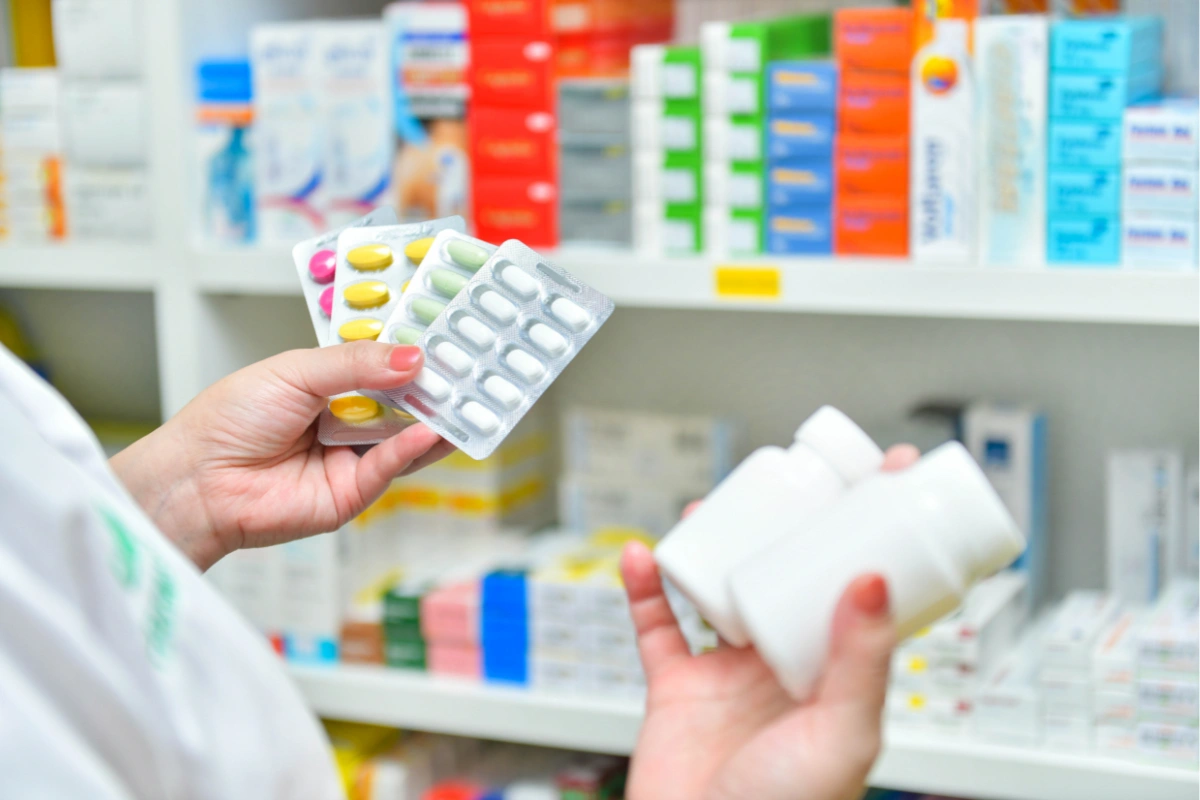
- Keep all medications in their original packaging for easier customs clearance in Thailand.
- Include a valid prescription or a letter from your doctor for each medication, especially controlled substances.
- Pack a dedicated travel kit with essentials like painkillers, antihistamines, and emergency meds (e.g., EpiPen, inhaler).
- Research Thailand’s customs rules on medications to avoid legal issues and adjust your supply if needed.
- Consult your healthcare provider about necessary vaccinations and anti-malaria tablets before your trip.
- Use reminders or a pill organiser to maintain a consistent medication schedule across time zones.
- Pack a backup supply of essential medications separately in case of lost or delayed baggage.
- Familiarise yourself with local pharmacies in Thailand to access additional medications if needed.
When travelling abroad, it’s crucial to plan for your medication needs carefully, as many countries have strict regulations. Keep your medications in their original packaging and bring a prescription or doctor’s note, especially for controlled substances.
Pack essentials like pain relievers, allergy medications, and any emergency items, such as an inhaler or EpiPen, in a travel kit for easy access. Be mindful of restrictions on specific drugs, and check for any necessary permits or prohibited substances to avoid issues at customs. Consulting with a healthcare provider beforehand ensures you’re well-prepared, and check the Thai FDA’s site for updated rules before departure to ensure a smooth and healthy trip.
Planning a longer stay? Protect your health abroad
If your trip to Thailand will last more than a few weeks, consider the added benefits of international health insurance. Cigna’s comprehensive plans provide peace of mind by offering a range of features designed for frequent travellers and expats:
- Coverage for prescription medications: Essential for managing chronic conditions or travel-specific treatments, like anti-malaria tablets.
- Emergency medical evacuation and care: Ensures you receive immediate assistance in serious health situations, no matter where you are.
- In-patient and out-patient care: Access hospitals or clinics for anything from routine check-ups to urgent procedures.
- Vaccination support: Covers recommended immunisations, like Hepatitis A or Japanese Encephalitis, which are essential for Thailand.
- Mental health and wellness coverage: Includes consultations, therapy, or support for stress-related issues while abroad.
- 24/7 multilingual customer service: Receive guidance and support anytime, ensuring smooth communication wherever you travel.
Final reminder: Black Friday extended offer!
Don’t miss out, secure your health insurance today and enjoy comprehensive benefits for less. The offer is only available for this month, so act now to lock in 2024 rates!
Last chance offer: 10% off for life!
Get 10% off your expat plan for the lifetime of your policy!
T&Cs apply*
*Cigna Healthcare reserves the right to amend or withdraw a promotion at any time without notice. This discount will apply for the lifetime of the policy and is only eligible to new Cigna Global Individual customers. The discount may only be applied by a sales agent and cannot be applied in conjunction with any other offer, except the 10% discount given to policies paid annually in full. If you choose to pay your policy annually in full, your 10% discount will be applied after the 10% annual discount has been applied. Only Cigna Global Individual Policies are eligible for the 10% discount. A minimum purchase value of $2000 for policies based in Europe is applicable. Policies based in the rest of the world require a minimum purchase value of $3000 to be eligible.
Frequently asked questions about medicines in Thailand
Can I bring Viagra to Thailand?
You can bring Viagra to Thailand for personal use, ideally in its original packaging and limited to a 30-90 day supply. A doctor's letter may help clarify its necessity. Viagra is available in Thai pharmacies without a prescription, so you might consider purchasing it locally instead.
Is chewing gum illegal in Thailand?
Chewing gum is not illegal in Thailand, but it is heavily regulated. The sale and importation of chewing gum are restricted, primarily to prevent littering. Disposing of used gum improperly, such as throwing it on the ground, can result in hefty fines or even jail time.
Can I bring condoms to Thailand?
Yes, you can bring condoms to Thailand for personal use. There are no specific restrictions on importing them, but it's advisable to carry them in their original packaging. Condoms are widely available in Thai pharmacies, so purchasing them locally is also an option.
Latest Thailand News
Follow The Thaiger on Google News:


























